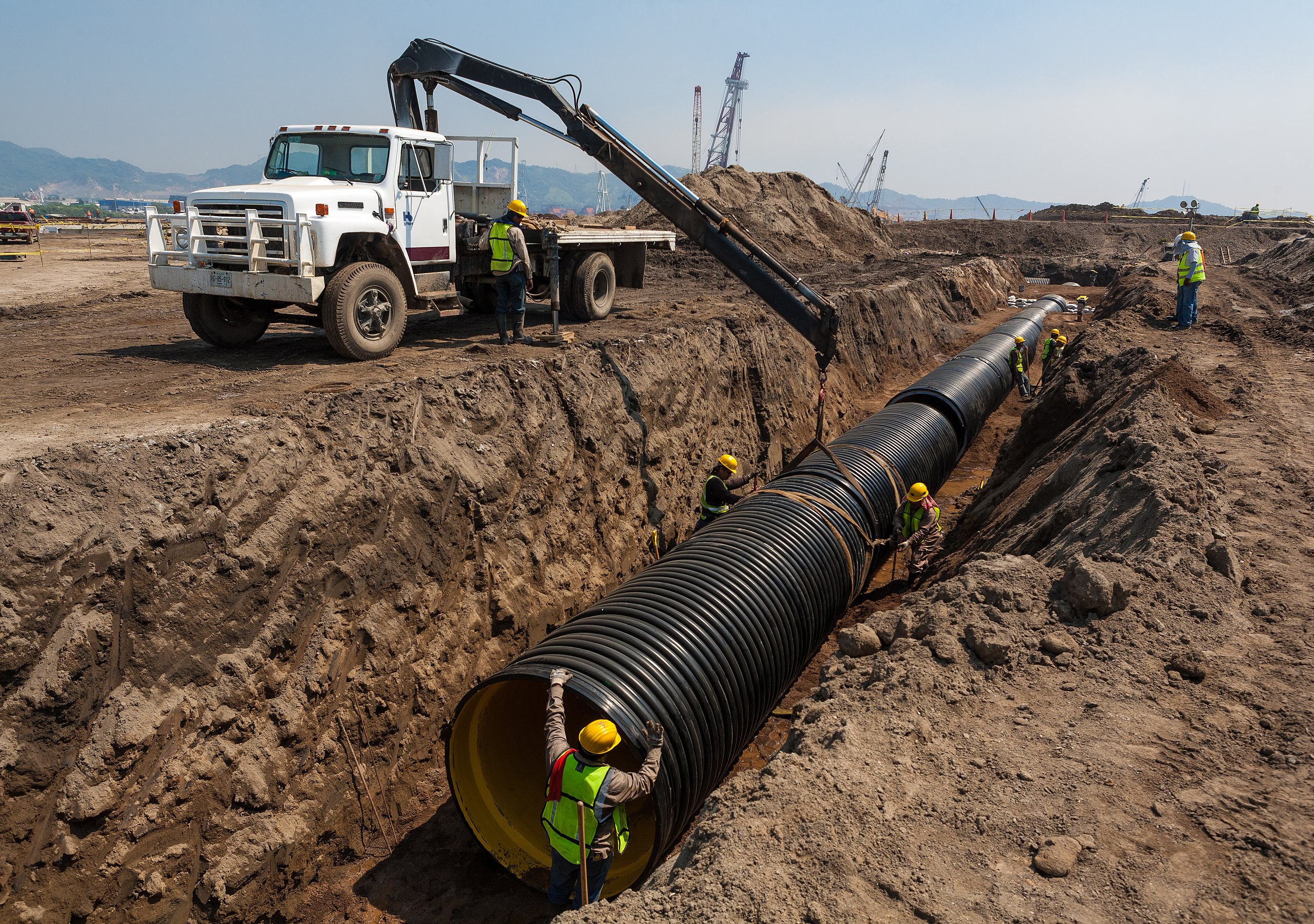How American Plastics HDPE Pipe for Oilfield Supports Reliable Transport Systems
Comprehending the Key Benefits of HDPE Pipeline for Water and Wastewater Monitoring
Making use of HDPE pipe in water and wastewater administration provides numerous benefits that merit consideration. Its extraordinary toughness and long life expectancy make it a preferred selection for lots of projects. Furthermore, the material's resistance to deterioration and chemical damages enhances its integrity in different environments. Nonetheless, the benefits extend past just longevity and resistance. Discovering its cost-effectiveness and environmental influence reveals also more compelling factors for its extensive adoption in contemporary framework
Extraordinary Durability and Durability

HDPE pipeline attracts attention for its extraordinary durability and longevity, making it a favored option in water administration systems. Created from high-density polyethylene, these pipes can endure considerable pressure and anxiety, ensuring dependable performance in time. Their robust nature enables them to withstand severe ecological problems, including temperature changes and dirt activities, which can create various other products to stop working.
The life expectancy of HDPE pipes frequently exceeds 50 years, supplying an affordable service for towns and industries alike. Furthermore, the product's lightweight properties streamline setup, decreasing labor costs and durations. This resilience minimizes the demand for regular repair work or substitutes, additionally enhancing its economic appeal.
In water monitoring applications, the dependability of HDPE pipes suggests fewer disruptions and improved service continuity, making them indispensable to sustainable framework advancement. The mix of toughness and longevity solidifies HDPE's duty as a cornerstone in reliable water management remedies.

Resistance to Rust and Chemical Damage
While numerous products succumb to deterioration and chemical damage with time, HDPE pipes show amazing resistance, making them excellent for various water administration applications. This resilience comes from the molecular framework of high-density polyethylene, which is naturally non-reactive and does not corrode like metals or break down from direct exposure to rough chemicals. As an outcome, HDPE is highly efficient in atmospheres with hostile materials, such as wastewater systems that might contain acids, bases, and organic solvents.
Additionally, HDPE pipelines can withstand environmental elements such as soil acidity and saline conditions, additionally improving their viability for diverse applications (Pipe Manufacturing Midland TX). Their ability to keep architectural honesty with time lowers the danger of leakages and failings, which is essential in ensuring the safety and integrity of water circulation and wastewater administration systems. As a result, the resistance to corrosion and chemical damage noticeably adds to the overall performance and long life of HDPE piping options
Cost-Effectiveness and Economic Advantages
When taking into consideration the monetary implications of water management systems, the cost-effectiveness of HDPE pipelines ends up being evident. These pipelines offer reduced setup and upkeep expenses compared to traditional materials like steel or concrete. Their lightweight nature streamlines transportation and installment, leading to lowered labor costs. Additionally, HDPE pipelines display a lengthy lifespan, often surpassing half a century, which converts to fewer substitutes and long-term financial savings.
The resistance of HDPE to deterioration and chemical damages reduces the demand for pricey repair services and substitutes. The pipelines also support reliable water circulation, minimizing power prices related to pumping systems. By alleviating leakages and water loss, HDPE pipelines add to significant economic benefits for communities and sectors alike. Overall, the preliminary investment in HDPE piping can produce significant economic returns over the life-span of the water management system, making it a prudent selection for lasting framework development.
Environmental Sustainability and Reduced Impact

Convenience and Flexibility in Installation
As a result of their special buildings, HDPE pipelines use remarkable flexibility and adaptability in setup, making them suitable for a large range of applications. Their lightweight nature permits much easier handling and transport, lowering labor prices and setup time. HDPE pipes can be bent and shaped to fit numerous surfaces and job requirements, which is specifically valuable in testing environments.
In addition, their resistance to corrosion and chemical damages permits for installment check here in diverse settings without the demand for specialized protective coatings. The capability to fuse joints creates a continual, leak-free system, improving the total honesty and integrity of the installment. HDPE's versatility additionally accommodates ground motion, lowering the risk of damage in areas susceptible to changing soil. In general, these attributes make HDPE pipelines not just versatile but also a preferred option for water and wastewater administration systems.
Regularly Asked Inquiries
Just How Does HDPE Pipeline Contrast to PVC in Water Management Applications?
HDPE pipe offers exceptional versatility, resistance to rust, and durability compared to PVC. Its lighter weight helps with much easier installment, while its lengthy life expectancy lowers substitute costs, making HDPE a preferred choice in water management applications.
What Is the Lifespan of HDPE Pipes Under Common Conditions?
Under typical conditions, HDPE pipes can have a lifespan varying from 50 to 100 years. Their resilience and resistance to rust add to their long-lasting performance in various applications, making them a reputable option for facilities.
Are HDPE Water Lines Recyclable After Their Service Life?
Yes, HDPE pipes are recyclable after their service life. custom hdpe pipe manufacturing Midland TX. They can be refined and repurposed right into new items, greatly reducing environmental influence and advertising sustainability within the market, making them a green selection for piping options
What Is the Installment Refine for HDPE Pipes?
The installment procedure for HDPE pipes involves site prep work, trenching, pipeline combination or mechanical joining, backfilling, and stress screening. Proper techniques assure a long lasting and efficient system for moving water and wastewater properly.
Can HDPE Water Lines Be Utilized for Both Potable and Non-Potable Water Equipments?
Yes, HDPE pipes can be used for both drinkable and non-potable water supply. Their adaptability, longevity, and resistance to rust make them ideal for different applications, making certain risk-free and efficient transportation of water in various contexts.